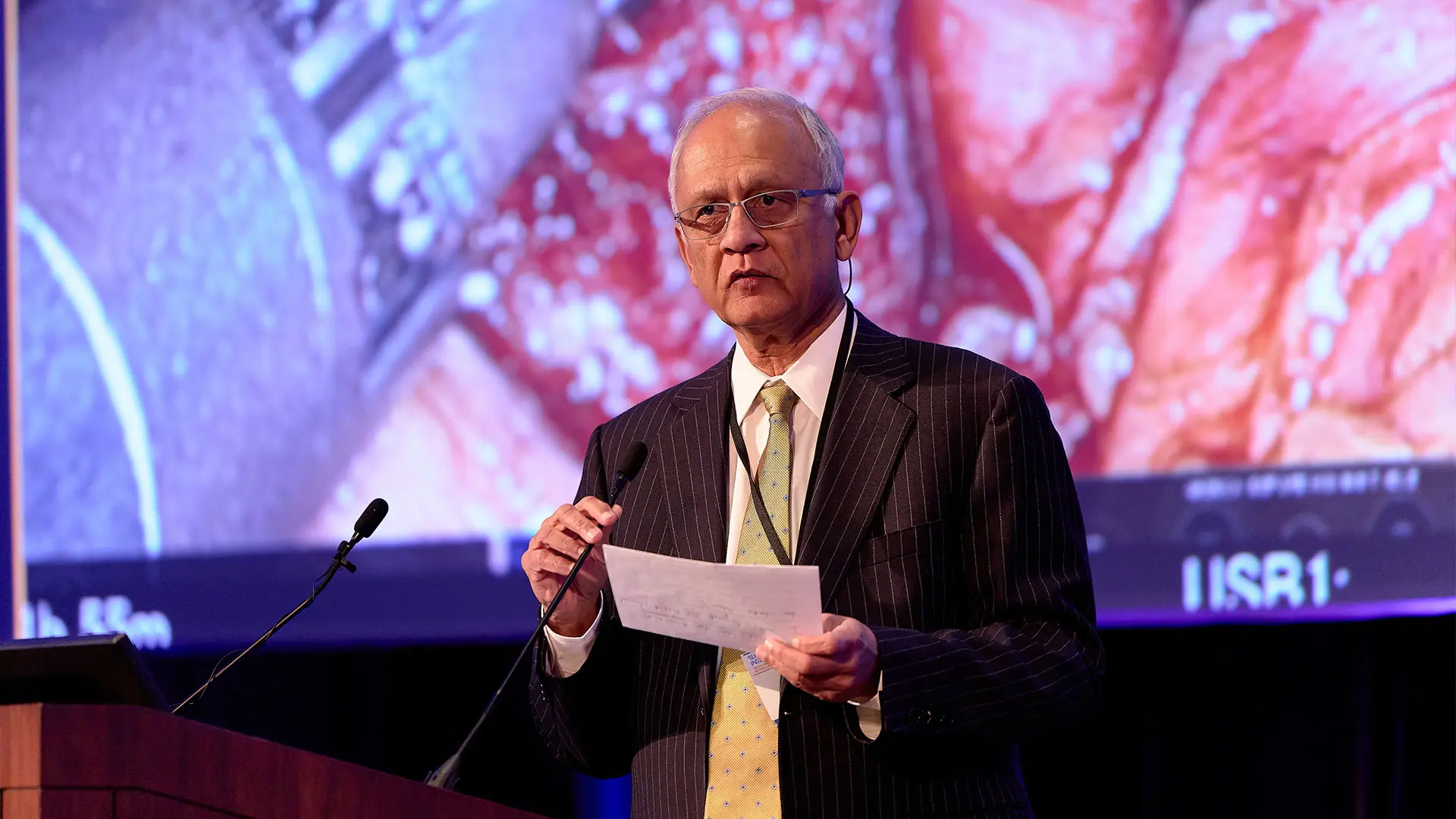Balancing effective prostate cancer treatment with preservation of urinary and sexual functions has long proven challenging for many urology surgeons. A new Mount Sinai study confirms that a novel approach to prostatectomy is safe and effective in achieving both aims among patients with prostate cancer.
The study found that 91 percent of patients who underwent Menon Precision Prostatectomy (MPP), an approach that maximizes nerve sparing, maintained both urinary continence and potency within one year of surgery with no intra-operative complications.
The study is the first external validation study of the technique, confirming the results of 120 patients at the Vattikuti Urology Institute at the Henry Ford Health System in Detroit, where the procedure was developed. The study, “Outcomes after precision prostatectomy: safety, efficacy, and transference of skills,” was published July 2024 in World Journal of Urology.
“What we determined is that MPP is a safe and reproducible technique that can ensure cancer control and preservation of functional status in select patients with unilateral dominant cancer,” says Ash Tewari, MBBS, MCh, FRCS (Hon.), DSc (Hon.), Chair, Milton and Carroll Petrie Department of Urology at Mount Sinai Health System.

A study found that 91 percent of patients who underwent Menon Precision Prostatectomy (MPP), an approach that maximizes nerve sparing, maintained both urinary continence and potency within one year of surgery with no intra-operative complications. Pioneered by Mani Menon, MD, Chief of Strategy and Innovation in the Department of Urology for the Mount Sinai Health System, the MPP approach is comparable to skin-sparing surgery for breast cancer.
Pioneered by Mani Menon, MD, Chief of Strategy and Innovation in the Department of Urology for the Mount Sinai Health System, the MPP approach is comparable to skin-sparing surgery for breast cancer. It involves the preservation of a 4-to-7-millimeter rim of prostatic tissue, and the seminal vesicle. This critical step makes the approach a precision procedure, protecting the thousands of microscopic nerves that are involved in erectile function.
Conducted between August 2022 and December 2023, the MPP study was open to patients with intermediate-risk prostate cancer who met eligibility criteria and who were interested in preserving their functional status post surgery.
Candidates underwent magnetic resonance imaging-fusion capsular biopsies to ensure there was no cancer in the anticipated remnant tissue. In instances where cancer was found to extend beyond the capsule, MPP was not performed. Preoperative consultations and biopsies were used to determine the precision dissection side.
In total, 20 participants were selected to undergo MPP, which was performed by Drs. Tewari and Menon. The median age of the study group was 62.5 years, and the median PSA was 6.89 ng/ml. Seventy percent of patients were categorized as favorable intermediate risk based on National Comprehensive Cancer Network guidelines, with the remainder categorized as unfavorable intermediate risk.
All participants were continent preoperatively, and 85 percent were potent. There were no intra-operative complications among the study group and no participants underwent an intra-operative conversion to radical prostatectomy. The median number of lymph nodes examined per case was 5.5, and no positive lymph nodes were found among the study group.

“What we determined is that MPP is a safe and reproducible technique that can ensure cancer control and preservation of functional status in select patients with unilateral dominant cancer,” says Ash Tewari, MBBS, MCh, FRCS (Hon.), DSc (Hon.).
“Interestingly, despite the learning curve for the procedure, we observed only slightly longer operative and console times—154 minutes,” says Dr. Tewari. “We believe this demonstrates that the skills required for the technique are easily transferable among surgeons.” Dr. Tewari is also Chair of Urology, The Mount Sinai Hospital; Director of the Center of Excellence for Prostate Cancer at the Tisch Cancer Institute, Icahn School of Medicine at Mount Sinai; and Surgeon-in-Chief of the Tisch Cancer Hospital at The Mount Sinai Hospital.
The study group was subsequently followed post-surgery at three-month intervals, and information regarding their functional status was simultaneously collected. Participants who had biochemical recurrence were advised to undergo remnant biopsy. In total, two patients underwent remnant biopsies, both of which were negative for cancer. No metastases or deaths were recorded during this study.
“Further studies are required to fully assess the value of this surgical technique, specifically to conduct a true comparison with robotic radical prostatectomy,” says Dr. Menon. “We plan to look further at this technique to gain more insights on how it can ensure adequate cancer control while preserving the functional status of patients.”
